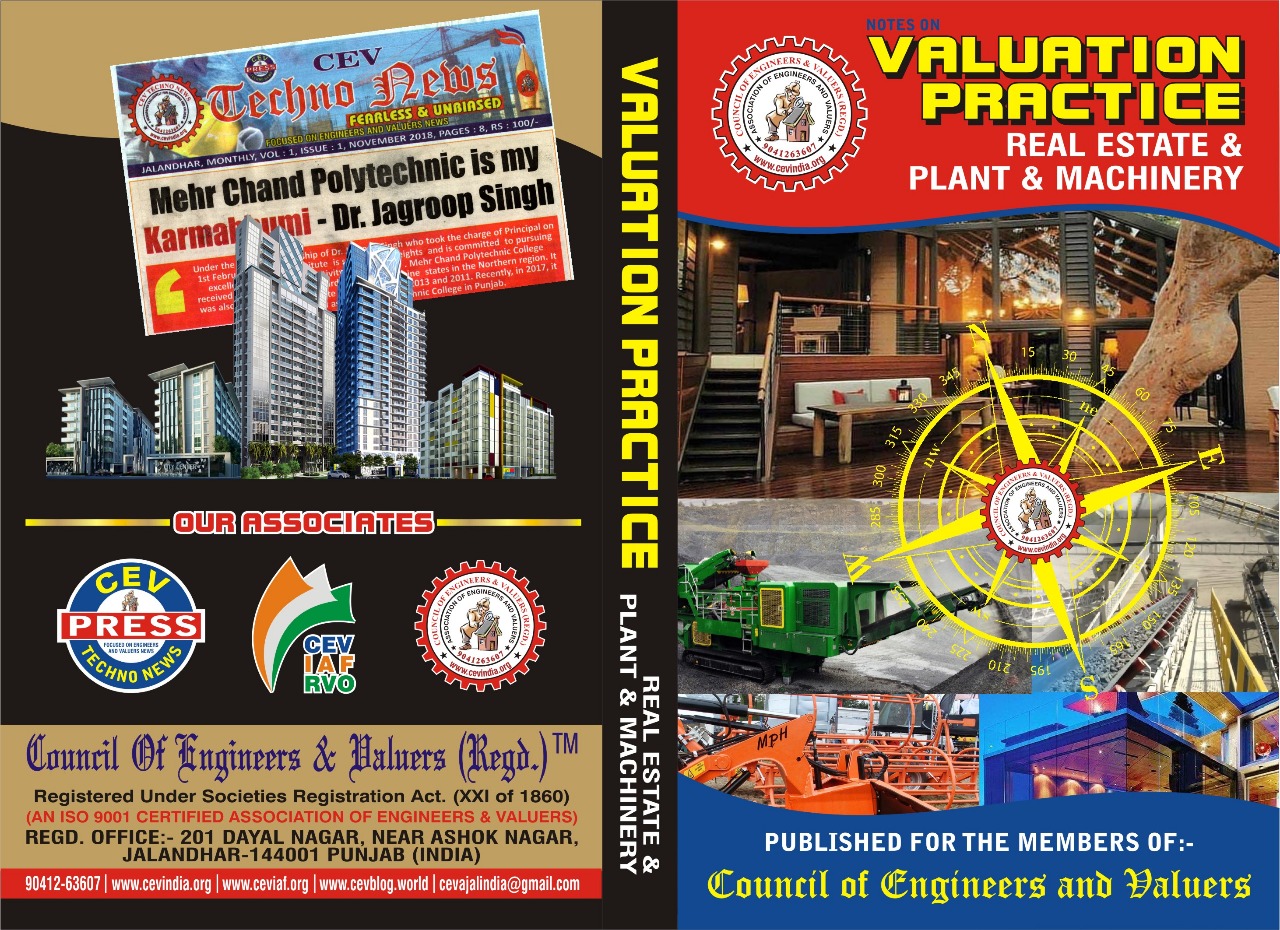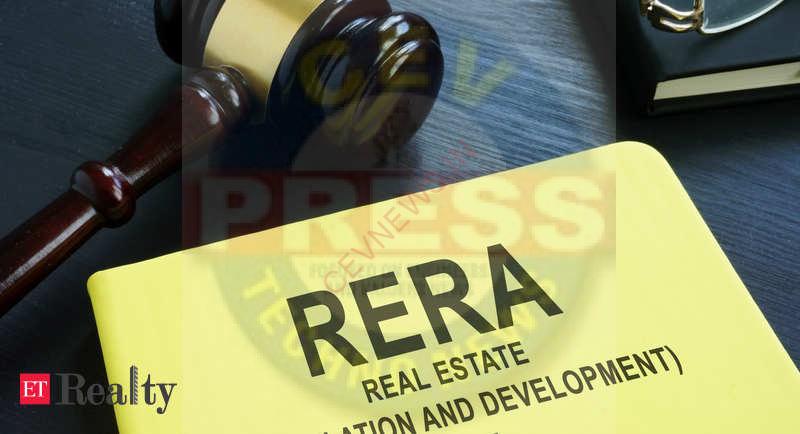INFORMATION ON REAL ESTATE (REGULATION & DEVELOPMENT) ACT, 2016 (RERA) USEFUL FOR EXAMINATION PURPOSES
COMPILED BY ER. VAIBHAV BANSAL
INTRODUCTION
The Real Estate (Regulation and Development) Act, 2016 is an Act of the Parliament of India which seeks to protect home-buyers as well as help boost investments in the real estate industry.
The bill was passed by the Rajya Sabha on 10th March, 2016 and by the Lok Sabha on 15 March 2016.
The Act came into force from 1 May 2016 with 69 of 92 sections notified.
The Central and state governments are liable to notify the Rules under the Act within a statutory period of six months.
Real estate regulatory authority (RERA) is the governing authority.
The law is not Retrospective
SALIENT FEATURES
Establishes the State Real Estate Regulatory Authority for that particular state as the government body to be approached for redressal of grievances against any builder.
Vests authority on the real estate regulator to govern both residential and commercial real estate transactions.
It is mandatory for developers to post all information on issues such as project plan, layout, government approvals, land title status, sub-contractors to the project, schedule for completion with the State Real Estate Regulatory Authority (RERA) and then in effect pass this information on to the consumers.
The current practice of selling on the basis of ambiguous super built-up area for a real estate project is declared illegal.
Carpet area has been clearly defined.
Punishment for developer who violates the order of the appellate tribunal of the RERA is three years with or without a fine.
Currently, if a project is delayed, then the developer does not suffer in any way. Now, the law ensures that any delay in project completion will make the developer liable to pay the same interest as the EMI being paid by the consumer to the bank back to the consumer
The developer cannot make any changes to the plan that had been sold without the written consent of the buyer.
This puts paid to a common and unpopular practice by developers to increase the cost of projects.
Every project measuring more than 500 square metres or more than eight apartments will have to be registered with the RERA.
The law mandates every builder to keep 70% of collection from every project in Separate Bank Account.
SEPARATE PROJECT ACCOUNT
Promoters have to open a separate dedicated project account 70% of customer advances have to be deposited in this account. Accounts are to be audited every financial year and copy has to be submitted to the authority -The funds in this account can be used for acquiring land and making other project related expenses – Withdrawals from the fund have to be certified by project engineer, architect and CAs There are strong penalties including freezing of project and compensation to buyers in case of default and diversion of funds to other projects.
CARPET AREA
Promoters have to sell the apartments only on carpet-area basis (area within the walls) and NOT on built-up and super built-up area basis.
If there is a more than 5 % decrease in the carpet area, promoter has to refund pro-rated amount to the buyer; however in case of increase in the carpet area, the buyer does not have to pay any additional amount to the promoter.
According to the RERA, carpet area is defined as ‘the net usable floor area of an apartment, excluding the area covered by the external walls, areas under services shafts, exclusive balcony or verandah area and exclusive open terrace area, but includes the area covered by the internal partition walls of the apartment.
Sec 2(k) of the RERA Act defines – carpet area” means the net usable floor area of an apartment, excluding the area covered by the external walls, areas under services shafts, exclusive balcony or verandah area and exclusive open terrace area, but includes the area covered by the internal partition walls of the apartment.
Explanation— For the purpose of this clause, the expression “exclusive balcony or verandah area” means the area of the balcony or verandah, as the case may be, which is appurtenant to the net usable floor area of an apartment, meant for the exclusive use of the allottee; and “exclusive open terrace area” means the area of open terrace which is appurtenant to the net usable floor area of an apartment, meant for the exclusive use of the allottee;
Further the requirement of a Promoter of the Real estate project to disclose the number, type and the carpet area of apartments for sale in the project along with the area of the exclusive balcony or verandah areas and the exclusive open terrace areas apartment with the apartment in accordance with Sec 4(2)(h) of the Act, makes it that much more transparent for a home buyer while purchasing an apartment.
COMPLETE DISCLOSURE OF PROJECT DETAILS
THE PROMOTER HAS TO:
Compulsorily register existing and new projects before launching or advertising (separate registration for different phases of same project).
Give FULL & TRUE disclosure of all projects undertaken in last 5 years with timelines, reasons for delay, copies of approval and commencement certificates, plan and layouts, land title, carpet area and apartments booked.
Provide a declaration supported by an affidavit stating that he has legal title to the land; that the land is free of all encumbrances; that the timelines will be adhered and that 70% of the customer advances will be deposited in the project account. This will safeguard buyers from delay.
In case of delay, PROMOTER has to pay interest to the BUYER.
RESIDENTS WELFARE ASSOCIATION:
RERA makes it mandatory for the formation of a Residents Welfare Association within 3 months after a majority of Residents have booked their homes. The developer and residents can mutually call for an AGM to form an RWA. At least 10 members should be part of the Managing Committee of the RWA. Conveyance deed for common area should be in favour of RWA The Managing Committee of RWA has to verify documents, books of accounts and facilities promised by the developer.
MAINTENANCE CHARGES
Maintenance charges are applicable as soon as the property is occupied by the buyer. They can be charged on a per flat basis, or on the basis of per sq ft area. The promoter is responsible for providing and maintaining essential services on reasonable maintenance charges to be paid by the residents and these books are open for scrutiny by the residents. Once the society’s RWA is formed, and the maintenance work is handed over to it, the builder can no longer charge for maintenance. RWA can then devise its own set of rules for maintenance charges.
OTHER SAFEGUARDING PROVISIONS
Provisions Explanation Anti-discriminatory clause
No discrimination in sale of properties
No transfer or assignment of project assets & liabilities
No such transfer can be done to a 3rd party without consent of 2/3rd allottees and Authority Failure to give possession as per terms or due to cancellation of registration refund consideration with interest (@SBI lending rate + 2%) Structural defect or defect in quality.
It can be brought to the notice of the promoter within 5 years from possession the promoter has to rectify the same in 30 days free of charge (Before this Act it was 2 years).
WHY THIS ACT IS REQUIRED?
Real Estate and the housing sectors were highly unregulated sectors
Lack of transparency in projects
No proper information about the builder
Lack of remedies available to the buyers
To protect the interest of consumers in the Real Estate Sector and to establish an adjudicating mechanism for speedy dispute redressal.
REGISTRATION
WHO IS LIABLE TO GET REGISTRATION FROM RERA?
All commercial real estate projects where the land is over 500 square metres.
All residential real estate projects where the land is over 500 square meters or eight apartments, to register with the Real Estate Regulatory Authority (RERA) for launching a project.
For on-going projects which have not received completion certificate on the date of commencement of the Act, will have to seek registration within 3 months. Real estate agents who facilitate selling or purchase of properties must take prior registration from RERA. Such agents will be issued a single registration number for each State or Union Territory, which must be quoted by the agent in every sale facilitated by him.
APPLICABILITY RERA:
It is applicable to Commercial and Residential real estate (including plotted development) On going projects that have not received Completion Certificates have to be registered within 3 months with the Regulator.
All the residential projects measuring 500 sq mtrs. or more than 8 apartments require to be registered.
All Real Estate Agents and Brokers have to take license from the State Authority and pay registration fees.
It is NOT applicable to renovation, repair or redevelopment projects that will not involve marketing, advertising, selling & new allotment.
WHAT IS THE PROCESS OF REGISTRATION?
Applicant has to file an application for registration with RERA in prescribed form along with prescribed fees and documents.
Application for registration must be either approved or rejected within a period of 30 days from the date of application by the RERA.
On successful registration, the promoter of the project will be provided with a registration number, a login id and password for the applicants to fill up essential details on the website of the RERA.
WHAT IS THE PENALTY FOR FAILURE TO GET REGISTER?
A penalty of up to 10 percent of the project cost or three years’ imprisonment may be imposed.
Consequence
Debar the promoters from accessing the its website in relation to that project
Specifying his name in list of defaulters
Display his photograph on its website and inform the other RERA.
Direct the bank to freeze the account 1. Time limit for registration For ongoing Projects – 3 months from commencement of this Act For new projects – 30 days 3.
REVOCATION
-
On complaint
-
Suo moto Where promoters makes default or violates any terms or conditions of the approval or promoters involved in any kind of unfair practice.
EXCEPTIONS
Area of land < 500 Sq. Meters
No. Of apartments < 8
In case of Renovation/ Repair/Re-development Registration.
PROTECTION OF BUYERS
The Act prohibits unaccounted money from being pumped into the sector.
As now, 70 per cent of the money has to be deposited in bank accounts through cheques.
A major benefit for consumers included in the Act is that builders will have to quote prices based on carpet area and not super built-up area
Carpet area has been clearly defined in the Act to include usable spaces like kitchen and toilets.
REAL ESTATE REGULATORY AUTHORITY AND APPELLATE TRIBUNAL
Establishment of State-level Real Estate Regulatory Authorities (RERAs) to regulate transactions related to both residential and commercial projects
RERAs will ensure timely completion and handover of projects.
Appellate Tribunals will now be required to adjudicate cases in 60 days as against the earlier provision of 90 days
Regulatory Authorities has to dispose of complaints in 60 days while no time frame was indicated in earlier Bill.
The Union Ministry Of Housing And Urban Poverty Alleviation issued a notification on April 19, 2017 announcing that sections 3-19, 40, 59-70, 79 and 80 of the Real Estate (Regulation and Development) Act, 2016, shall come into force on May 1, 2017….
FUTURE IMPLICATIONS OF THE AMENDMENT
These measures are expected to boost domestic and foreign investment in the sector and help achieve the objective of the Government of India to provide ‘Housing for All by 2022’, through enhanced private participation.
The Bill ensures mandatory disclosure by promoters to customers through registration of real estate projects as well as real estate agents with the Real Estate Regulatory Authority.
The Bill aims at restoring confidence of the general public in the real estate sector; by instituting transparency and accountability in real estate and housing transactions. This in turn will enable the sector to access capital and financial markets essential for its long term growth.
The Bill will promote orderly growth through consequent efficient project execution, professionalism and standardization.
The Bill is expected to ensure greater accountability towards consumers, and to significantly reduce frauds and delays.
The Bill is also expected to promote regulated and orderly growth through efficiency, professionalism and standardization. It seeks to ensure consumer protection, without adding another stage in the procedure for sanctions.
FUTURE IMPLICATIONS OF THE AMMENDMENT
APPLICABILITY OF THE BILL: The proposed initial Bill was applicable for residential real estate. It is now proposed to cover both residential and commercial real estate
ESTABLISHMENT OF REAL ESTATE REGULATORY AUTHORITY:
Establishment of one or more ‘Real Estate Regulatory Authority’ in each State/ Union Territory (UT), or one Authority for two or more States/UT, by the Appropriate Government for oversight of real estate transactions, To appoint one or more adjudicating officers to settle disputes and impose compensation and interest
REGISTRATION OF REAL ESTATE PROJECTS AND REGISTRATION OF REAL ESTATE AGENTS:
Mandatory registration of real estate projects and real estate agents who intend to sell any plot, apartment or building, with the Real Estate Regulatory Authority.
MANDATORY PUBLIC DISCLOSURE OF ALL PROJECT DETAILS:
Mandatory public disclosure norms for all registered projects such as details of promoters, project, layout plan, plan of development works, land status, status of statutory approvals and disclosure of proforma agreements, names and addresses of real estate agents, contractors, architect, structural engineer etc.
FUNCTIONS AND DUTIES OF PROMOTER: ·
Disclosure of all relevant information of project; · Adherence to approved plans and project specifications; · Obligations regarding veracity of the advertisement for sale or prospectus; · Rectify structural defects; · Refund money in cases of default.
SALIENT FEATURE OF THE AMMENDMENT
COMPULSORY DEPOSIT OF 50 PERCENT:
To compulsorily deposit 50 percent (or such lesser percent as notified by the Appropriate Government) of the amounts realized for the real estate project from the allottees in a separate account in a scheduled bank within a period of fifteen days to cover the cost of construction to be used for that purpose.
ADHERENCE TO DECLARED PLANS:
To bar the promoter from altering plans, structural designs and specifications of the plot, apartment or building without the consent of two-third allottees after disclosure; However, minor additions or alterations permissible due to architectural and structural reasons.
FUNCTIONS OF REAL ESTATE AGENTS:
Real estate agents to sell properties registered with the Authority; · Maintain books of accounts, records and documents; · Not to involve in any unfair trade practices.
RIGHTS AND DUTIES OF ALLOTTEES:
Right to obtain stage-wise time schedule of project; · Claim possession as per promoter declaration and refund with interest and compensation for default by the promoter; · Allottees to make payments and fulfill responsibilities as per agreement.
FUNCTIONS OF REAL ESTATE REGULATORY AUTHORITY:
The Authority to act as the nodal agency to co-ordinate efforts regarding development of the real estate sector and render necessary advice to the appropriate Government to ensure the growth and promotion of a transparent, efficient and competitive real estate sector.
FAST TRACK DISPUTE SETTLEMENT MECHANISM:
Fast track dispute resolution through adjudicating officers (District Judge); · Appellate Tribunal to hear appeals.
SALIENT FEATURE OF THE AMMENDMENT
(l). Establishment of Central Advisory Council: To advise the Central Government on implementation of the Act, recommend policy, protection of consumer interest and to foster growth and development of the real estate sector.
ESTABLISHMENT OF REAL ESTATE APPELLATE TRIBUNAL:
Real Estate Appellate Tribunal to hear appeals from orders of the Authority and the adjudicating officer. The Appellate Tribunal is to be headed by a sitting or retired Judge of the High Court, with one judicial and one administrative/technical member.
PUNITIVE PROVISIONS:
Punitive provisions including de-registration of the project and penalties in case of contravention of provisions of the Bill or the orders of the Authority or Tribunal.
BAR OF JURISDICTION COURTS:
Provision for barring jurisdiction of court and any authority from entertaining complaints in respect of matters covered under the Bill.
POWER TO MAKE RULES AND REGULATIONS:
Appropriate Government to have powers to make rules over subjects specified in the Bill; · Regulatory Authority to have powers to make regulations.
TO KNOW ABOUT THE AUTHOR CLICK THE LINK BELOW

RELATED POSTS:-
How to become a Registered Valuer under Companies Act? ALL YOU NEED TO KNOW -An Overview
UNDERSTANDING DIFFERENCE BETWEEN REPRODUCTION, RECONSTRUCTION, REPLACEMENT & REINSTATEMENT
USEFUL INFORMATION ON CONTRACTS & VALUATION: BEAUTIFULLY COMPILED ARTICLE PRESENTATION WORTH READING
Difference Between Pledge, Hypothecation, Mortgage & Assignment-All You Need to Understand
Disclaimer :
We take all possible care for accurate & authentic news/empanelment/tender information, however, Users are requested to refer Original source of the Notice / Tender Document published by the Issuing Agency before taking any call regarding this tender.




